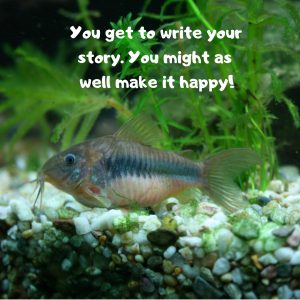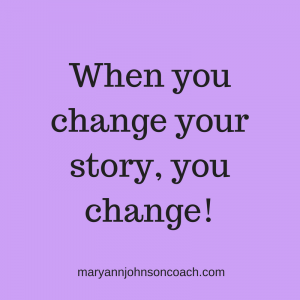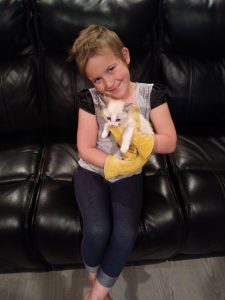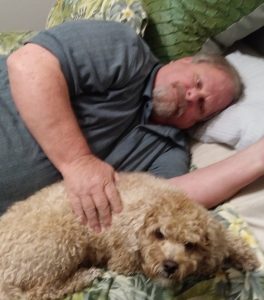 I got a fabulous call recently from a dear friend. She wanted to tell me about her three grandchildren, twins, aged 8 and one, aged 5. They have been playing a game with their grandma when she takes them to school 3 times a week. It’s called, Embellish the Story. One of them begins the story and then they each take a turn adding to it. In other words, they embellish it.
I got a fabulous call recently from a dear friend. She wanted to tell me about her three grandchildren, twins, aged 8 and one, aged 5. They have been playing a game with their grandma when she takes them to school 3 times a week. It’s called, Embellish the Story. One of them begins the story and then they each take a turn adding to it. In other words, they embellish it.
My friend said the best thing is watching their faces when the person ahead of them takes the story in a direction they didn’t want or didn’t anticipate. She sees their face go from annoyed or mad to thoughtful and then illuminated as they figure out where they can take the story, so it fits what they want better.
Recently, in school, the older girl’s teacher said that they were going to have an embellishment project. The twins were so excited because they knew what the word meant. They were the only kids in class who knew what it meant. So, what does the word mean to them? That is a very interesting thing – In their words you get to tell your story and sometimes you make stuff up.
Our Stories Matter!
Isn’t that the truth. In every situation, we get to tell ourselves the story and sometimes we make stuff up. And it all affects the results that we get. I’ve learned through almost seven decades of life that we do have control over the story that we tell ourselves in any situation and that the story we tell impacts our response to whatever is happening and the outcome that we get.
One of my favorite quotes is from Viktor E. Frankl, a Holocaust survivor. He said, “When we’re no longer able to change a situation—we’re challenged to change ourselves.” He reminded us in his book Man’s Search for Meaning the one thing that can never be taken from a person is their ability to choose how to respond (Frankl)
This can be tough because it means that, just like these little girls, we have to figure out how to tell a better story, one that leads us to the destination we want.
You’ve all heard this old saying or something like it, “What you say is what you get.” It’s true. If you say, “My kids are driving me nuts,” they’ll drive you nuts. If you say, “I can’t stand my kids today,” or “My kids are so sloppy, messy, noisy, naughty, and so on,” that’s what you’ll get. It’s what you perceive is happening, regardless of what’s actually going on.
I worked with a self-employed mother who was telling herself a negative story about her son’s actions. She felt he was whiney and needy. He was a bother when she was trying to work. Her responses to her son were causing a strained relationship between them. She was having difficulty figuring out how to fix the situation. When I asked her to tell me more about her son, she replied that he was bright, loving, and responsible.
We talked about the importance of our story, how they affect our response and ultimately the result we get. Her result was painful. She determined to change the story even if the situation wasn’t changing. She decided to remind herself of her sons’ positive qualities each time she began to experience annoyance or frustration.
When I talked with her next, I asked her how it was going. She replied she and her son were no longer at odds. She enjoyed his company. She could see that he was just interested in what she was doing, and they had had opportunities to connect on and off during the day. She was able to respond positively to him more often.
This mom got better results because her feelings were positive. Her feelings were positive because she changed her story about her son.
Now back to my friend and her grandchildren. She made the call because she wanted to thank me for all that she has learned about taking control of our stories and how impactful and life-changing that has been.
She wanted me to know that because I have made an impact in her life, she has been able to make an impact in the lives of her granddaughters. This morning as she dropped them off to school she asked, “Now when you get in school you get to tell your story. So, what will you do if someone gets your story going in a different direction that you don’t want it to go or that wasn’t what you expected? They knew – “We get to take it in the direction we want it to go!”
As my friend said goodbye and thanked me for sharing with her through the years, she had tears in her voice because as she said, “It’s wonderful when you can see it used in real life, and when you can help the rising generation learn it so much earlier. I know this is going to have an impact on how their lives will go.”
Here are a few tips to help you have better stories.
• Take responsibility and stop blaming
• Decide to think the best of others
• Choose your words wisely
• Keep practicing
Take responsibility for your thoughts, the stories, and emotions they create, and your responses. Stop blaming. Take responsibility for your words, which are your stories in concrete form. You’re in control of the stories you tell—stories about yourself, your family, your children, the world, the past, the present, and the future. Knowing this gives you all the power.
Our Stories Determine Our Happiness Level
Stories are powerful in determining our happiness level. My granddaughter, Mary, is six. She loves to watch the fish in our tank. We have a very sleek, silver catfish that swims fast and erratically whenever anyone stands in front of the tank. I believe the fish does this out of fear or because it has been disturbed. One day Mary asked me, “Do you know why this fish swims so fast when I’m looking at him?” I replied, “No, why?” She responded with, “Because he likes me!”
Mary, like all of us, gets to write the story, and her story makes her happy. And for all I know, her story may be as true as mine.
Want to Know More?
If you want an in-depth understanding of how to control your responses in tough situations, how telling a better story can open up your internal resources, and an in-depth look at the tips above as well as a few more, then read my book Becoming a Present Parent: Connecting with Your Children in Five Minutes or Less. You can purchase it on Amazon or at your local bookstore. Here’s to better stories and better outcomes.



 I grew up in a family that always had a dog. We had Sheppard’s and once we even had a giant poodle. We named him Expense.
I grew up in a family that always had a dog. We had Sheppard’s and once we even had a giant poodle. We named him Expense.

